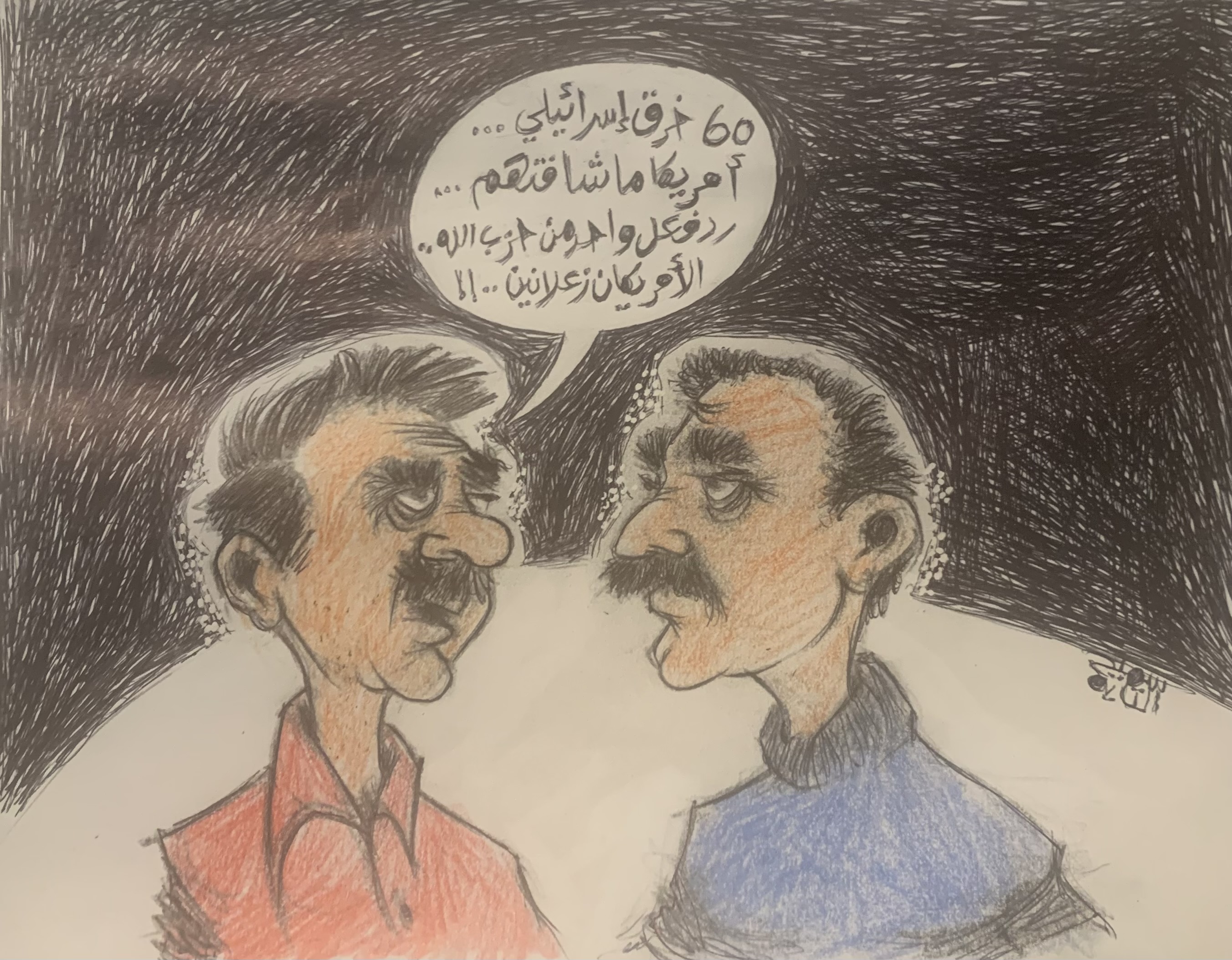Dotting the I’S & Crossing the T’S
Does Syria accept if Lebanon requests?
Written by Nasser Kandil,
Lebanon faces a priority agenda that differs from the Syrian one; it is related first, to the confrontation against the terrorists groups, which mainly centered at Arsal Barrens within the Lebanese borders. Second, the presence of the kidnapped soldiers with these groups. Third, the magnitude of the pressure which is generated by the complexity of the negotiation process in the Lebanese territory.
The Syrian Priorities related to the current phase as the Syrian officials see, by securing the needs of three battles, in which Qalamoun is the forth. The battle of surrounding the armed groups in Aleppo, is a sequence of the army’s achievements in its process to complete the siege, the great regional and the international attraction about the future of Aleppo, according to the declarations of the Turkish Prime Minister and the Foreign Minister of France, and after the attacks which the supported groups of the West were received by Al-Nosrah Front. The Syrian military leadership is concerned with securing the conditions to complete the requirements of achieving the decisive success in this front.
The second front is the Eastern Ghouta, where the successes which were achieved in all of Jobar, Adra, and Ain Tarma have enabled the progress towards the castle of the armed people in Douma. Through the termination and the cleaning in the Esatern Gouta, it imposes in addition to a secure peace for the capital’s population, and their safety from the random irregular shells which confuse the movements in the capital; it directs a fatal blow against the Eastern Gouta for the remaining components of the Free Army, whom the West put its bets on.
The third front is the Southern front, which stretched from the passages of the Syrian-Jordanian borders to Al-Quneitra and Haramoun Mountain in the borders between Lebanon, the occupied Palestine, and Golan. In this front, the military necessities require a cleaning process and a gradual siege which pushes the armed groups towards the borders, taking into consideration the majority presence of Al-Nosrah Front in this region, and which many of Washington’s allies and at their forefront Israel, Qatar, and some of the Saudi institutions are trying to promote it as an acceptable part. The call of Washington to adopt it rather than the Free Army explains the concept of the moderate opposition, despite of its being the official branch of Al-Qaeda organization, since the battle needs a political necessity.
The forth order of the termination process in Qalamoun stems from its being relatively stable, since the army with the collaboration of Hezbollah have built a barrel which prevented any penetration in such a region which will be covered by the coming snow and will end the lives of the militants. The Syrian army is keeping its permanent readiness through the ready fiery defend on the ground and in the air, moreover, the forced attack of the militants is sheltering inside the Lebanese territory, so it requires a military Syrian Lebanese coordination, but Lebanon is not ready yet because its government is subject to the balances, accounts, and pressures.
In the Lebanese agenda there is one priority which is Qalamoun, in which is the equal force of ISIL and Al-Nosrah, and which can be betted on by its followers whose number does not exceed the tens, who settled in other Lebanese areas, so without it the dreams of these groups fall. Moreover, the issue of the Lebanese kidnapped soldiers, whom are going around a difficult hard negotiation, and which its solutions are unreachable without a Lebanese acceptance, so this removes the reverence of the country.
Lebanon in its negotiation with ISIL and Al –Nosrah needs Syria, because it is faced by the demands related to arrested people in Syria, moreover, in its negotiated military pressure, and in the military planning for termination, it needs Syria.
Lebanon through its government, president, and its two ministers the defense and the interior, who are involved in the contact according to the hypothesis which Al Qalamoun imposes, are escaping from the talk to Syria, and even some of them have assailed against the Syrian country in a militia language that did not relate to the logic of the country. The question will be with the end of the lost time and the attaining of the critical decisions concerning the negotiation, confrontation, or the necessary combination between them. Who will talk to Syria?
Does the General Manager of the Public Security, the General Abbas Ibrahim, who is charged in the kidnapped soldiers issue, accept to hold the responsibility of the security discussion with Syria, or does he have to wait for a public governmental authorizing, which is belonging to the partnerships of at least the involved ministers? Does the Syrian government accept this security channel, which has imposed its acceptance in the past through the characteristic of the Azaz kidnapped people, and which Hezbollah the closest ally of Syria has carried the burden of its solving through its blood partnership, after the Lebanese country had retracted? While when it came to the major West countries, Syria refused the security channel and insisted on the political deal, and it refused a confused political form, such as the accommodation of a European ambassador in a hotel instead of the embassy, after this European country had accepted to return to the diplomatic track. So why does Syria accept from a Lebanese government that turns its back to it, and which behaves in an arrogant way that does not look like the relationships which should be depended between two neighboring countries such as Syria and Lebanon, while this kind of relations is not accepted from any foreign or Western countries which show an interest in correcting the relations.
The Lebanese Justice Minister has described Al-Nosrah Front as rebels, and the Minister of the interior has launched a severe speech against the Syrian country, and many others in the governments have done the same, if not more, so why Syria has to wait till the Lebanese officials behave responsibly? And why it has to release tens or even hundreds of the arrested terrorists of women or men just because the Lebanese government wanted that? And why the Lebanese government which does not want to talk publically and formally in an essential respect with the Syrian government, does not want to ask those whom it praised, or even talk to those who incited it against Syria like Saudi Arabia, Gulf countries, the Western countries, and maybe Egypt just to bargain on the arrested people whom the armed groups concerned with in order to continue the negotiation about the kidnapped soldiers? And why does it ask from the international alliance to support it in Arsal Barrens in order to secure the military pressure on ISIL and Al-Nosrah, if it finds this useful or necessary in a suitable time?
2014-11-10 | عدد القراءات 1918









